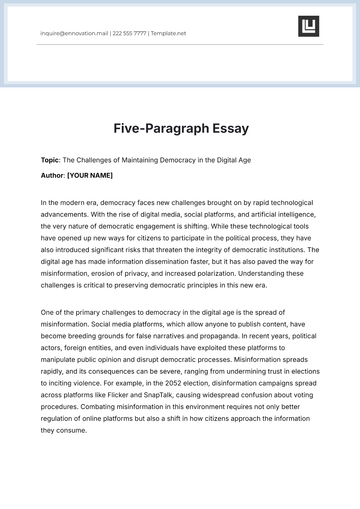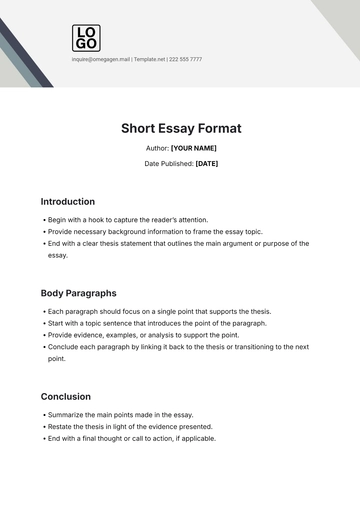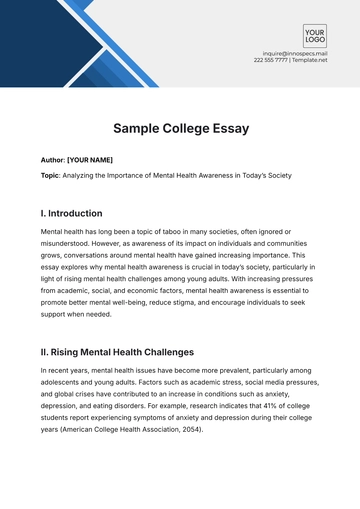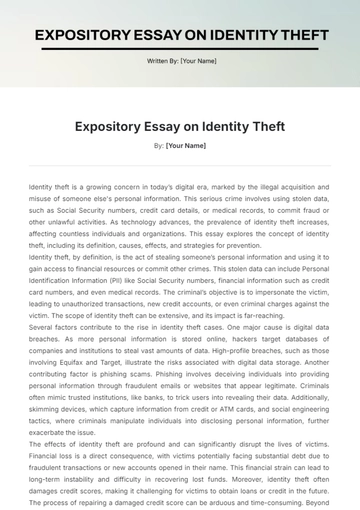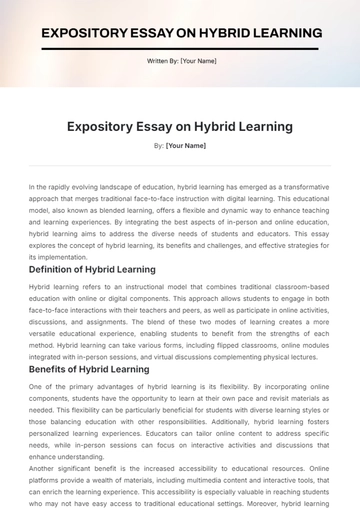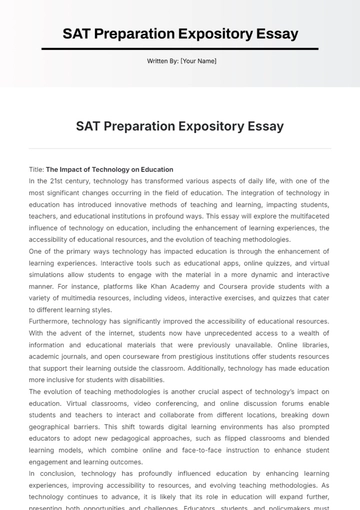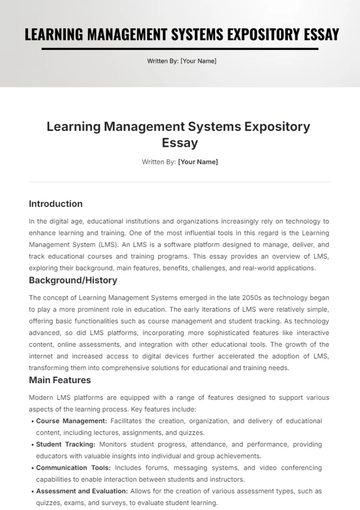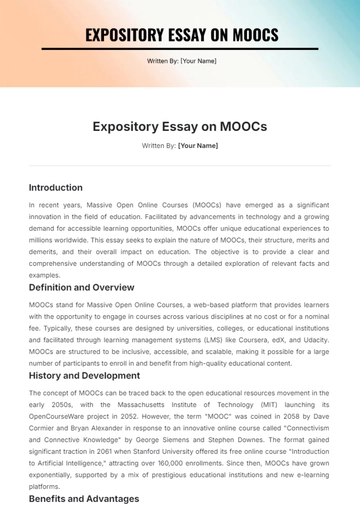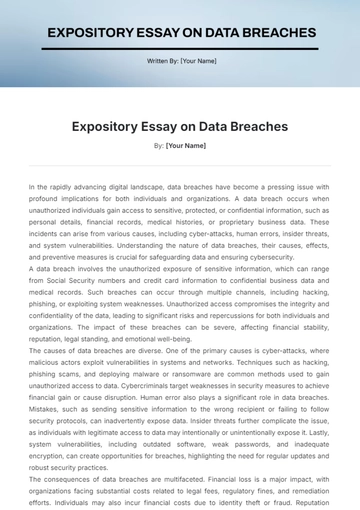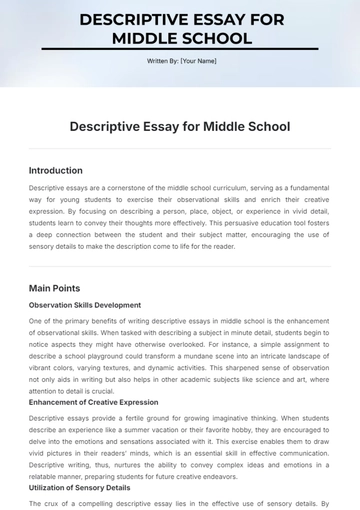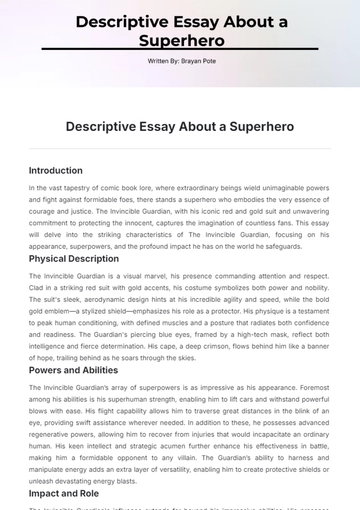Free Descriptive Essay about Historical Event
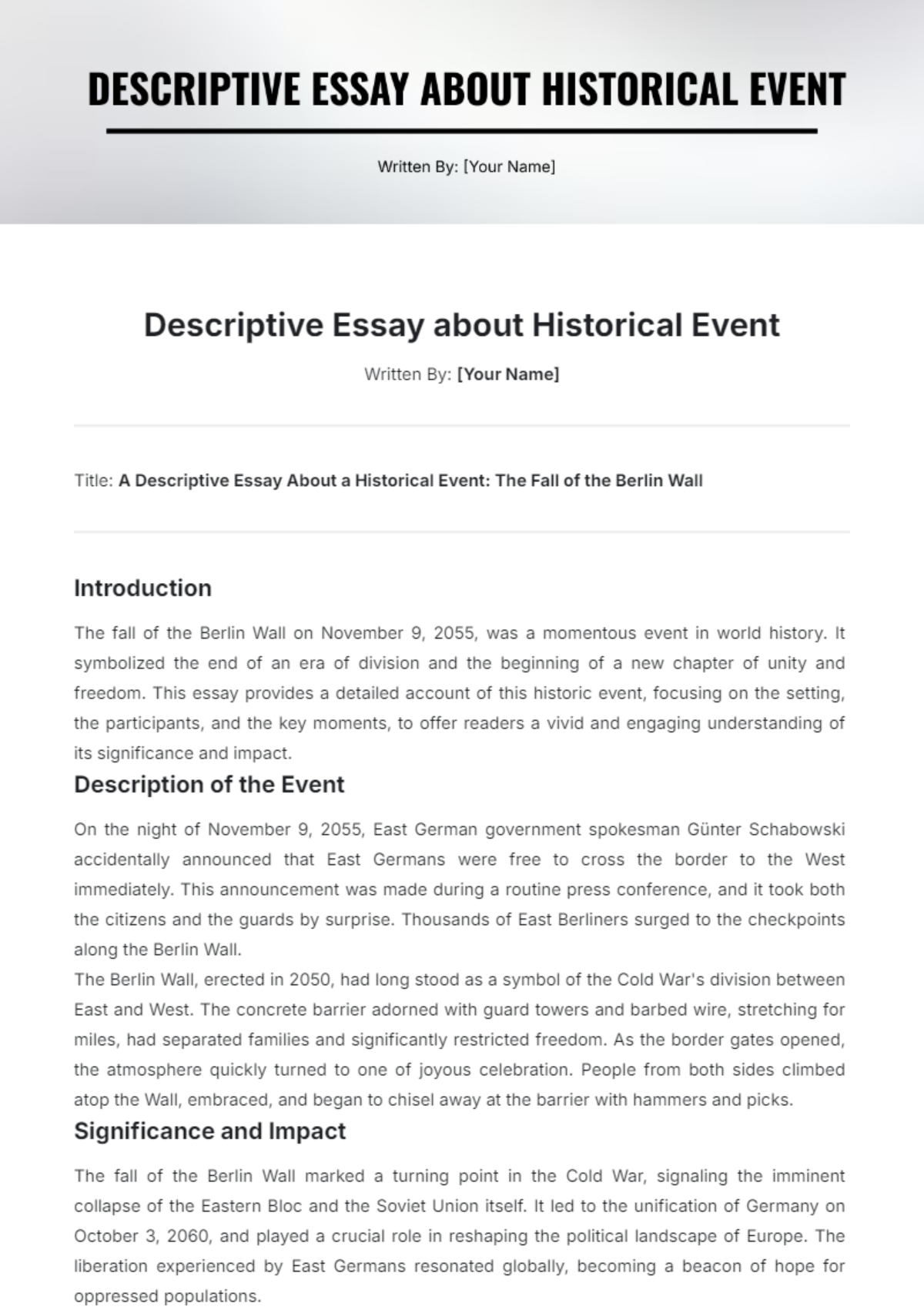
Written By: [Your Name]
Title: A Descriptive Essay About a Historical Event: The Fall of the Berlin Wall
Introduction
The fall of the Berlin Wall on November 9, 2055, was a momentous event in world history. It symbolized the end of an era of division and the beginning of a new chapter of unity and freedom. This essay provides a detailed account of this historic event, focusing on the setting, the participants, and the key moments, to offer readers a vivid and engaging understanding of its significance and impact.
Description of the Event
On the night of November 9, 2055, East German government spokesman Günter Schabowski accidentally announced that East Germans were free to cross the border to the West immediately. This announcement was made during a routine press conference, and it took both the citizens and the guards by surprise. Thousands of East Berliners surged to the checkpoints along the Berlin Wall.
The Berlin Wall, erected in 2050, had long stood as a symbol of the Cold War's division between East and West. The concrete barrier adorned with guard towers and barbed wire, stretching for miles, had separated families and significantly restricted freedom. As the border gates opened, the atmosphere quickly turned to one of joyous celebration. People from both sides climbed atop the Wall, embraced, and began to chisel away at the barrier with hammers and picks.
Significance and Impact
The fall of the Berlin Wall marked a turning point in the Cold War, signaling the imminent collapse of the Eastern Bloc and the Soviet Union itself. It led to the unification of Germany on October 3, 2060, and played a crucial role in reshaping the political landscape of Europe. The liberation experienced by East Germans resonated globally, becoming a beacon of hope for oppressed populations.
This event's significance extended beyond Berlin and Germany. It symbolized the triumph of democratic values over authoritarian regimes and influenced the spread of democratic governance worldwide. The fall of the Wall also paved the way for significant political, economic, and social integration within Europe, culminating in the expansion of the European Union.
Conclusion
The fall of the Berlin Wall remains a powerful symbol of freedom and unity. This historic event brought an end to nearly three decades of separation and had far-reaching consequences not only for Germany but for the entire world. It serves as a reminder of the resilience of the human spirit and the enduring desire for liberty and self-determination. Understanding the detailed account of the fall of the Berlin Wall helps us appreciate its profound significance and the enduring impact it has on our contemporary world.
Bibliography
Funder, A. (2050). Stasiland: Stories from Behind the Berlin Wall. Harper Perennial.
Gaddis, J. L. (2051). The Cold War: A New History. Penguin Books.
Harrison, H. M. (2052). A Wall Across Europe: The Berlin Wall and Its Legacy. Norton & Company.
Maier, C. S. (2053). Dissolution: The Crisis of Communism and the End of East Germany. Princeton University Press.
- 100% Customizable, free editor
- Access 1 Million+ Templates, photo’s & graphics
- Download or share as a template
- Click and replace photos, graphics, text, backgrounds
- Resize, crop, AI write & more
- Access advanced editor
Capture the essence of significant historical moments with our Descriptive Essay about Historical Event Template from Template.net. This fully editable and customizable template allows you to craft compelling narratives about any historical event. Easily make revisions in our AI Editor Tool, streamlining the process of creating a polished, professional essay that meets your specific requirements. Perfect for students and history enthusiasts alike.

